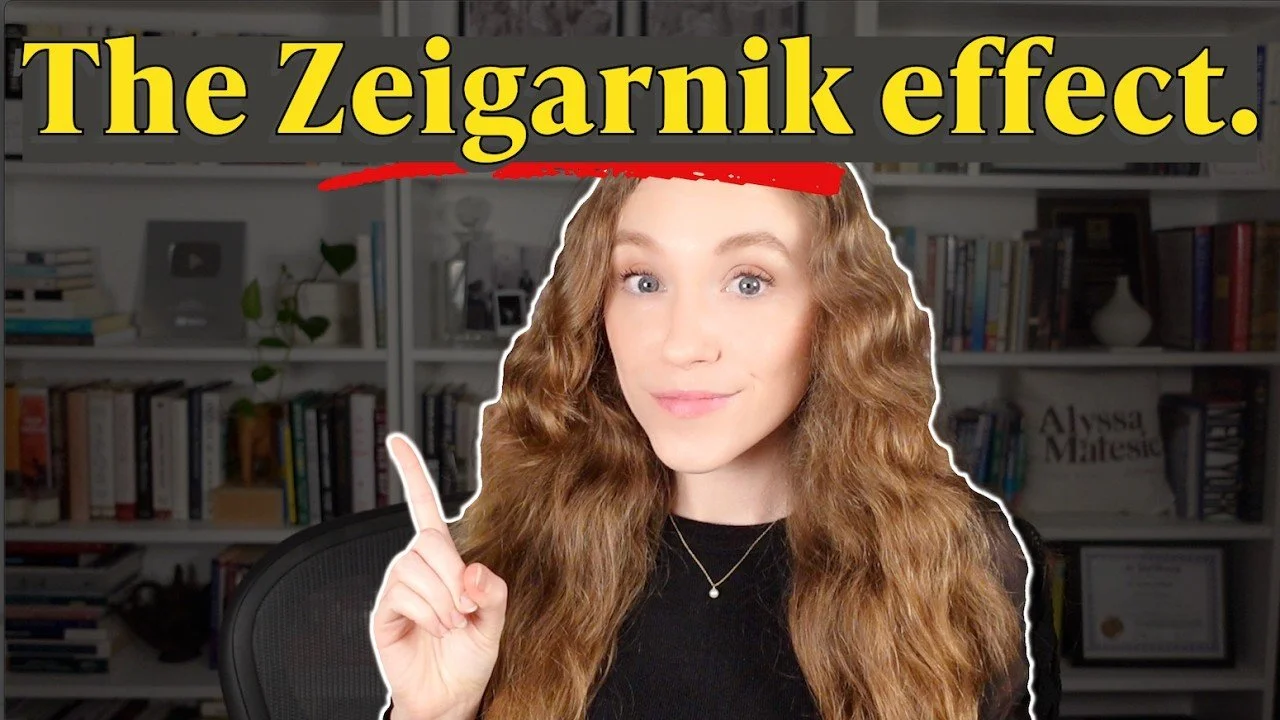How to Write Better Prose: 3 Ways to Elevate Your Writing
HIT PLAY OR READ THE POST BELOW:
We all know great writing when we read it. It instantly makes you feel immersed in the story and captivated enough to want to continue reading more. We've all had that feeling where we've read a sentence that was just so well-composed that it emotionally moved us. Ultimately, all writers aspire to have readers connect with their writing on that level. But it can be a challenge to figure out how to replicate strong prose in your own work.
I'll admit, even as a professional book editor, sometimes I struggle to articulate exactly what makes someone's writing so good. After reflecting on some of the incredible novels I’ve edited recently, I figured out three foolproof strategies for how to write better prose and instantly elevate your own writing. I'm also going to share excerpts from books by bestselling authors who are using these strategies so you can see them in action and come to recognize them as you are also reading.
1. Make Every Word Matter
If you want to know how to write better prose, the first step is to make every word matter. This will instantly help you elevate your writing to a professional level.
There are two words that I often find myself using when I am describing strong fiction writing: authoritative and intentional. The reason that I use these words is because a great writer establishes trust with the reader from the very beginning of their story. We trust them to carry us through the entire narrative and deliver a captivating reading experience.
But how do you make your own writing come across as intentional and authoritative? It comes down to ensuring each and every word packs a punch and holds its weight in the story. We must have the sense that everything that is on the page is there for a very specific reason and that it is all contributing to the overarching story. There should be no fluff or filler material.
So, on a scene level, this means that each and every scene meaningfully contributes either to developing the plot or developing our understanding of a character that we care about. Your manuscript shouldn't be full of scenes that are inconsequential, where nothing significant happens. You should also be careful to avoid extraneous information delivery or overlong descriptions that aren't enhancing the reader's experience of the story.
On a sentence level, being intentional and authoritative in your prose means avoiding redundancy and being concise yet effective in what you're trying to convey. Choose your words meaningfully so that each one goes further in making your point. A challenge that you might consider is trying to say in five words what you originally were saying in 20.
Let's take a look at a novel excerpt that illuminates this point. This is from The Midnight Library by Matt Haig, and it's how the novel opens:
Nineteen years before she decided to die, Nora Seed sat in the warmth of the small library at Hazel School in the town of Bedford. She sat at a low table, staring at a chessboard.
“Nora, dear, it's natural to worry about your future,” said the librarian, Mrs. Elm, her eyes twinkling. Mrs. Elm made her first move, a knight hopping over the neat row of white pawns. “Of course you're going to be worried about the exams, but you could be anything you want to be, Nora. Think of all that possibility. It's exciting.”
Notice that the author really only gives us two brief lines in the first paragraph introducing Nora and taking us into the setting before we dive right into her conversation with Mrs. Elm. There's truly no excess or filler material here. For instance, we don't see Mrs. Elm come up to Nora and ask to play chess with her. We don't see any greetings between them or any small talk. The author immediately takes us right into the most important part of their conversation. And this is how we know that this author is being very intentional in what they are showing us, and we trust that they are going to carry us through this story with intentionality.
2. Show Small, Authentic Experiences
The next way to write better prose is to show small, authentic experiences. We all ultimately read to form a connection to the characters' journeys, to share in some human experience or emotion that is being explored through your story. And the best writers know how to convey some sort of truth through their characters' actions or comments that the reader can immediately relate to and connect with. Sometimes, they're small or even mundane things that the characters are doing — things that we maybe don't even think about consciously. But once we see them on the page, we immediately understand what that author is talking about.
These moments allow the reader to connect with the characters and the story because we feel like we have been in or seen someone in that situation, and we immediately understand exactly what that character is experiencing and going through. This can be as simple as a well-timed look that one character gives another. It can be a comment that a character makes internally. It could be a description of what a character is doing when nobody is watching them. Or it could be something that we see a character say aloud that we know doesn't align with how they actually feel.
These little, authentic moments where the character is showing their true self to the reader allow us to engage more deeply with the story, and it's one thing that sets strong writers apart from amateurs.
Here's an excerpt from a novel that I really love called Such a Fun Age by Kiley Reid that illustrates this point:
Market Depot sold bone broths, truffle butters, smoothies from a station that was currently dark, and several types of nuts in bulk. The store was bright and empty, and the only open checkout lane was the one for ten items or fewer, next to a dried fruit section. Zara bent in her heels and held her dress down to retrieve a box of yogurt-covered raisins. “Um, eight dollars?” She quickly placed them back on the shelf and stood up.
This is a relatively mundane moment of the character browsing the grocery store and then making a comment that the items are totally overpriced. But it captures a very specific experience and feeling that many readers can immediately connect with. It might call to mind a specific place that you have shopped at. Little moments like this go a long way toward helping the reader establish a foundational connection with your characters and feel more invested in how their journeys pan out.
3. Use Figurative Language Strategically
My last suggestion for how to write better prose and instantly elevate your writing style is to use figurative language strategically. While there's nothing wrong with composing relatively simple, straightforward prose that is meant to be taken literally, most writers who are operating at the height of their craft leverage figurative language in one way or another. Many times, their use of figurative language is what makes their writing so striking and memorable.
If you need a quick refresher, figurative language includes devices like metaphors, similes, and personification where you, as an author, are drawing two separate concepts together to help the reader understand an element of your story or a description element in more depth and nuance.
I give you this tip with caution because amateur writers who want to know how to write better prose sometimes throw in similes and metaphors that ultimately come across as overdone or cliché. For example, how many times have we heard phrasing that some character's eyes shone like the sun? Throwing in figurative language that isn't effective can actually have the opposite effect and make your writing weaker and even, in some cases, more derivative. But nailing figurative language and making it your own will undeniably make you a stronger storyteller and make readers more captivated by your prose.
So, let's look at an excerpt from a novel that includes figurative language. This is from Apples Never Fall by Liane Moriarty:
Two men and two women sat in the far corner of a cafe underneath the framed photo of sunflowers at dawn in Tuscany. They were basketball-player tall, and as they leaned forward over the mosaic-topped round table, their foreheads almost touched. They spoke in low, intense voices, as if their conversation involved international espionage, which was incongruous in this small suburban cafe on a pleasant summery Saturday morning, with freshly baked banana and pear bread scenting the air and soft rock drifting languidly from the stereo to the accompaniment of the espresso machine's industrious hiss and grind.
Were you able to find the simile in this passage? It comes when the author says that the group's voices sounded as if their conversation involved international espionage, which I think is a very effective way at conveying a sense of urgency or ominousness in the tone of their voices. This simile is especially effective because it contrasts so jarringly with the suburban café, an idyllic-type setting. We know that the characters aren't literally talking about international espionage, but we're intrigued to learn what they are talking about and why they're having such an intense conversation in this cafe. Making unexpected comparisons like this can immediately make the reader more intrigued in your story and trust in you as a storyteller even more.
I hope this helped you identify how to write better prose and gave you some ideas to make your own writing stronger. Thanks so much for reading, and happy writing!






